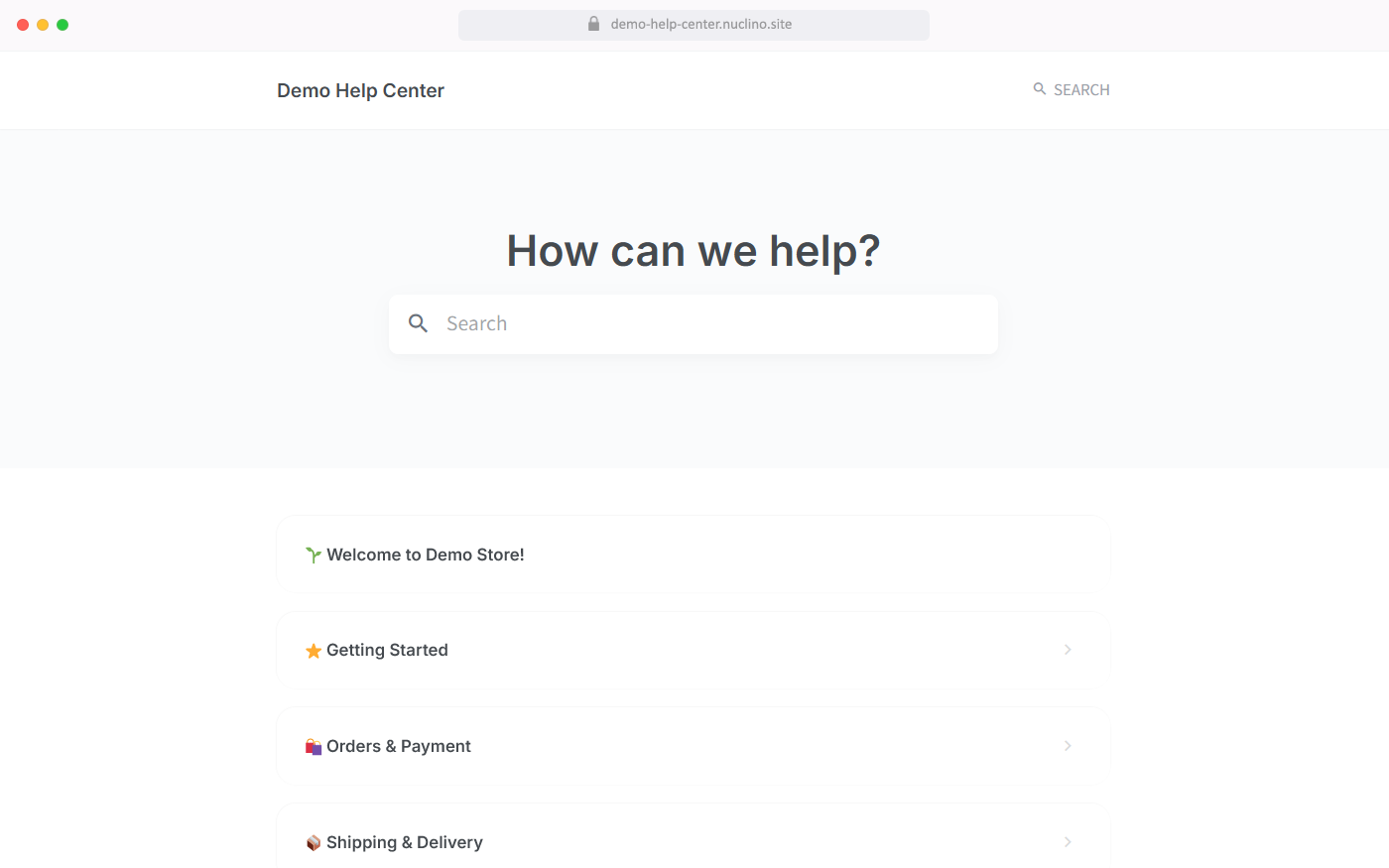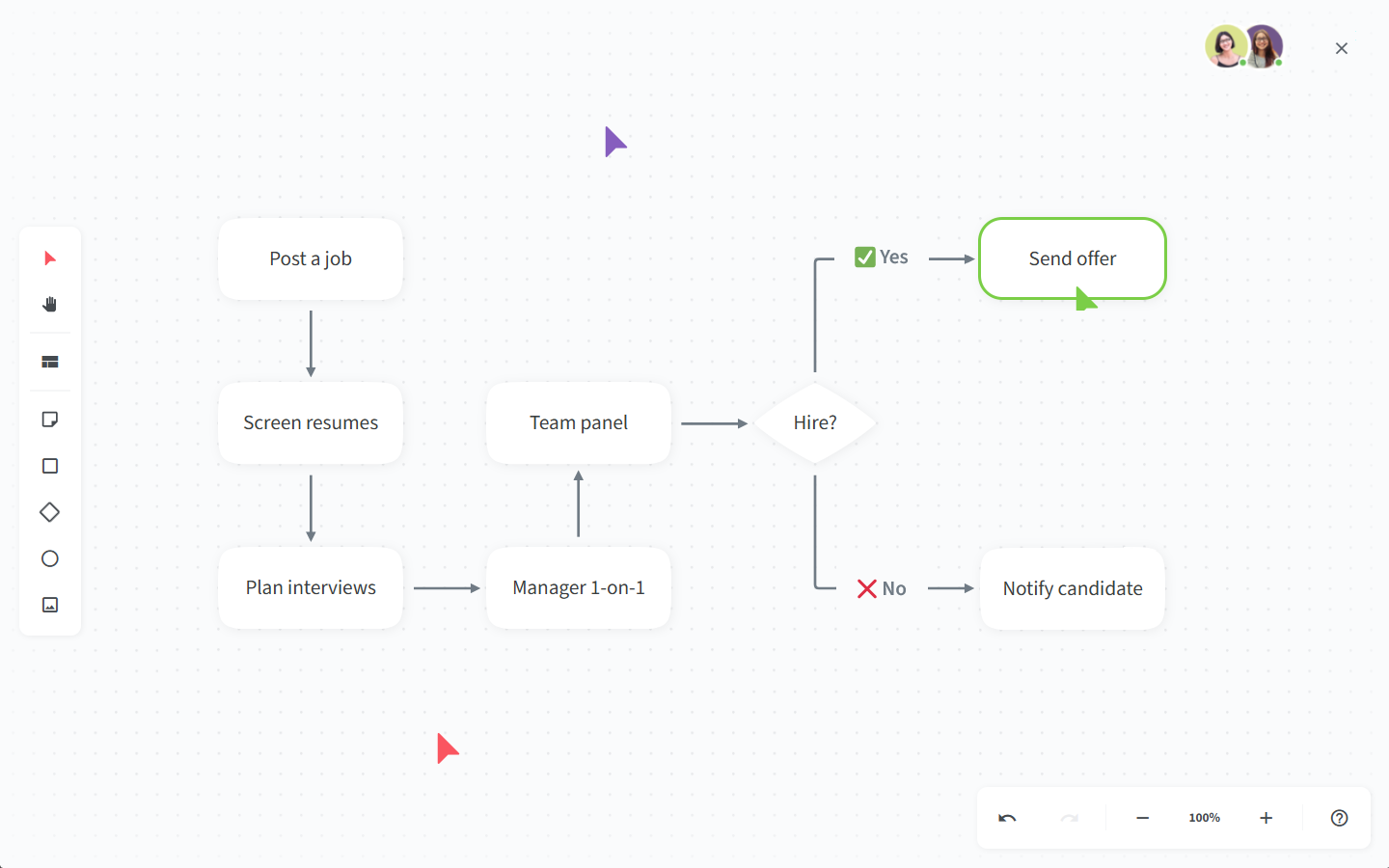Best MediaWiki Alternatives in 2025: Review and Comparison
Looking for an alternative to MediaWiki? You've come to the right place.
MediaWiki is a free and open-source wiki software that powers some of the largest wikis in the world, including Wikipedia. It offers unparalleled flexibility, with more than 1,000 configuration settings, over 1,800 extensions, and interface localization options for over 300 languages.
But being the most popular choice doesn't always mean it's the best, and MediaWiki is not without its drawbacks, for example:
The learning curve can be quite steep for new users.
The initial setup is fairly complex and requires technical skills.
The editing experience can be clunky, making it troublesome to maintain your content.
There is no built-in user rights management system.
Despite its shortcomings, MediaWiki can still be a great wiki tool for many organizations. However, if you are looking for a more modern and user-friendly solution, let's explore your options. Fortunately, there are many great MediaWiki alternatives to choose from.

Top 5 MediaWiki alternatives
To make your decision easier, we've put together a list of the 5 best MediaWiki alternatives and competitors, based on real reviews.
MediaWiki is a multifunctional solution. It can be used for anything from small personal or private wikis, to professional wikis designed for companies, to large public wiki sites. The best choice ultimately depends on the type of wiki you are planning to build.
Check out the MediaWiki alternatives below and find the one that best suits your needs.
1. Nuclino

If you are looking to replace MediaWiki as your knowledge base or corporate wiki, Nuclino is a great option. It's a modern and easy-to-use alternative to MediaWiki that works out of the box and requires no complex configuration. Nuclino focuses on the essentials and offers a clean, distraction-free interface, intuitive navigation, an easy drag-and-drop editor, and fast and reliable search.
One of Nuclino's distinctive strengths is the effortless editing and collaboration experience. Every page in Nuclino can be collaborated on by multiple users in real time, with every change automatically preserved in the version history. Comments and mentions can be used to exchange quick feedback and collaboratively maintain the content of your wiki.

Organizing your documentation is just as easy with wiki-style internal links, which allow you to link related wiki pages together. Simply type "@" and the name of the page you'd like to link to.

One of the downsides of MediaWiki is that it's designed to be as open as possible and is not well-suited for storing sensitive or confidential information. There is no built-in way to manage access rights and permissions. In Nuclino, on the other hand, you can easily decide who on your team has access to what, making sure important documents don't get deleted or shared with unauthorized members. The user roles and permissions are straightforward and easy to manage.

You can also turn any Nuclino workspace into a public website, accessible to anyone on the web and discoverable via search engines. It's perfect for help centers, user documentation, changelogs, and much more.

Nuclino comes with an AI-powered assistant Sidekick. It can instantly answer any question based on your content, brainstorm ideas, create first drafts, generate images, summarize long documents, and more.
Nuclino also offers built-in visual collaboration and allows you to add an infinite collaborative canvas to any page. You can use it to create diagrams and flowcharts, organize ideas using sticky notes, build moodboards, and much more.

While Nuclino can be used exclusively as an alternative to MediaWiki, it's highly versatile and can replace many other online collaboration tools as well.
In addition to being able to organize your docs in a nested list, Nuclino allows you to visualize your work in a Kanban board, a table, or a mindmap-style graph. This makes it a great solution for a much wider range of workflows and use cases, including sprint planning, document collaboration, new employee onboarding, issue tracking, and many more. It's a unified workspace where you can bring all your team's knowledge, docs, and projects together in one place and collaborate without context switching or silos.

What makes Nuclino a great alternative to MediaWiki:
Nuclino comes with a minimal learning curve, and even non-technical users can easily set up and use it.
Nuclino offers a frictionless editing experience and supports real-time collaboration.
Nuclino includes a built-in user rights and permissions management system.
Every interaction in Nuclino is optimized for speed: no page loads, instant search, real-time sync, Markdown commands, and shortcuts.
Nuclino can replace multiple other tools in addition to MediaWiki, bringing all your work together in one place.
Notable features:
List, board, table, and graph views.
Real-time collaboration.
Internal links.
Version history.
Permissions and access rights management.
Comments and mentions.
Embeds & integrations with 50+ different apps.
What users say about Nuclino:
"Nuclino is exactly what you'd want in a wiki software. Anyone trying to organize a series of documents/notes in an organization should check out Nuclino because it fits the bill. The design of the product is so good that it's actually fun writing new notes/docs in the app."
— Capterra review (read more reviews of Nuclino)
2. Confluence

Another MediaWiki alternative worth considering is Atlassian Confluence. It's one of the oldest enterprise wiki solutions and knowledge base tools on the market with over 60,000 customers worldwide, including many Fortune 500 companies.
The feature set of Confluence is very extensive and includes a wide range of data security features, which MediaWiki lacks. An additional benefit is its seamless integration with the other products in the Atlassian suite. If you are already using other Atlassian tools, such as Bitbucket, Confluence is likely to easily fit into your workflow.
Confluence does come with a certain learning curve, but it's still considerably easier to get started with than MediaWiki.
Looking for more tools similar to Confluence? Check out this list of Confluence alternatives.
What users say about Confluence:
"With Confluence, we have an environment that is very efficient to work in to add new content, very easy to update articles and manage file attachments. I have used other systems in the past, notably MediaWiki and SharePoint, and while I enjoyed them at the time, Confluence blows everything else out of the water."
3. SharePoint

Microsoft SharePoint may not be the most obvious choice for a MediaWiki alternative, but depending on your requirements, it may turn out to be a good fit.
SharePoint is used by 190 million people across 200,000 organizations. It comes for free with any Microsoft Office 365 subscription, making it a cost-effective option for any company already powered by Microsoft. While its primary purpose is to serve as a company intranet portal, it's exceptionally flexible and can be used as an internal wiki as well.
Note that SharePoint comes with a steep learning curve and a fairly complex interface. New users will likely be overwhelmed by all the available settings and menus and will need dedicated training to get the hang of the platform.
Looking for more tools similar to SharePoint? Check out this list of SharePoint alternatives.
What users say about SharePoint:
"SharePoint has so much functionality. We store all of our company data in SharePoint and use the landing page as our wiki. At first, I found it difficult to navigate in, but learned quickly enough. I train others in using this software and encourage them to just be patient and it will click."
4. DokuWiki

DokuWiki is similar to MediaWiki in many ways. Both are open-source, self-hosted, and free wiki platforms written in PHP.
But while MediaWiki is primarily designed for building large and complicated wiki sites, DokuWiki is best suited for smaller wikis. MediaWiki is more powerful, flexible, and scalable, yet more complicated to set up and manage. DokuWiki, on the other hand, is simpler and relatively easier to install and maintain. Unlike MediaWiki, which requires a database to be installed, DokuWiki stores all data in files.
What users say about DokuWiki:
"As the name implies, DokuWiki is made for documentation, manuals, and descriptions. This is also, where the software can score its most points. It is possible to create nicely formatted and easy-to-read documentation and information. In addition, the installation and menu are quite easy. But while DokuWiki does certainly perform its duties more than well, the design looks a bit dated and simple."
5. Wiki.js

If you are looking for an open-source, self-hosted wiki platform, but find the interface of MediaWiki and DokuWiki to be too dated, consider Wiki.js. It's a wiki engine running on Node.js and written in JavaScript. Popular among developers, Wiki.js saves all content directly as Markdown files and syncs with your remote Git repository.
In terms of features, it's much more limited than MediaWiki, but it makes up for it with a modern interface, relatively quick setup, a lower learning curve, and all essential functionality built-in, with no plug-ins needed.
Find the right MediaWiki alternative for you
While MediaWiki is undoubtedly one of the oldest and most widely used wiki engines in the world, it's showing its age. Today, more and more teams are starting to explore their options and look for a more modern and user-friendly alternative to MediaWiki.
There is no "one-size-fits-all" solution, and the best choice depends on your unique requirements and preferences. We hope this list has made the decision a little easier.
Ready to get started?
